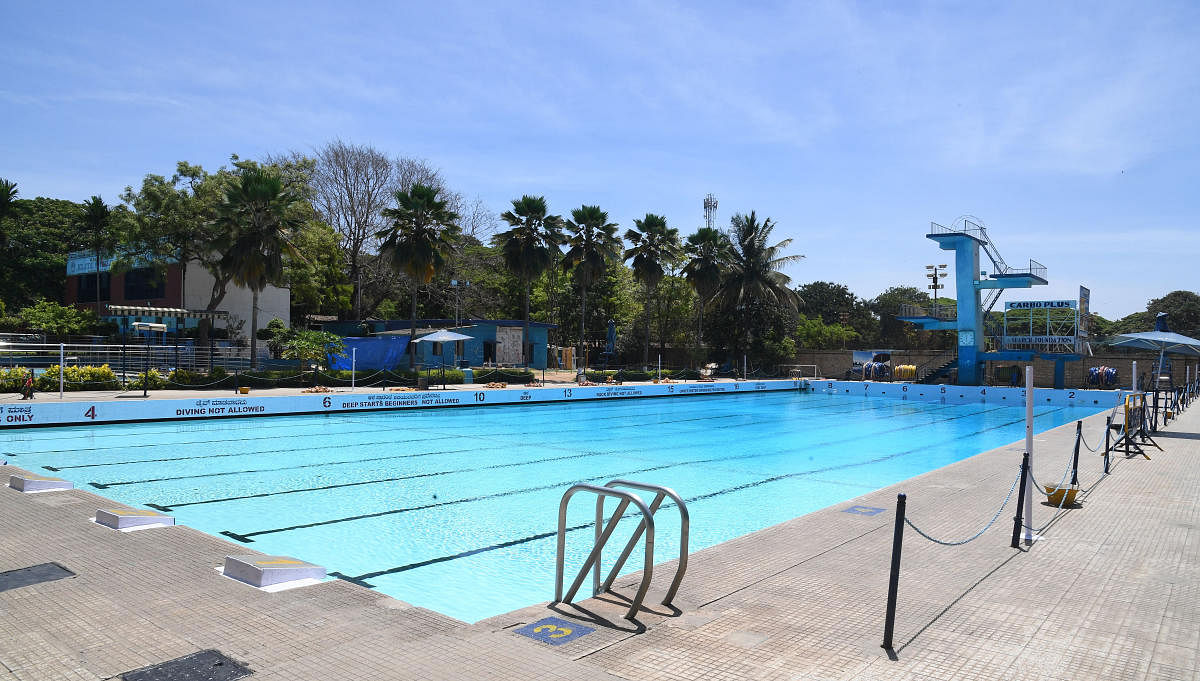
The Covid-19 enforced social-distancing norm is all set to bring in huge change in how the swimming academies are run but those in the business of running the pools for aspiring swimmers and general public see a bleak future due to fear of virus infection.
While upgraded disinfection and maintaining distance is a thing of the future, Satish of Swimlife and his likes, who run summer camps in the state, are staring down the barrel having missed out on a bounty season.
Between the end of March and June, private swimming camps in Bangalore generate 80 per cent of their annual revenue. This three-month (give or take) period is their lifeline, it’s what provides for infrastructure, maintenance and salaries.
“It is going to be a challenge for us to keep our heads above water. I cannot pay my coaches and maintain my pools if this continues. We’re looking at severe losses. We have some schools and academies that hopefully support us after the worst is over. That’s the only hope. Honestly, though, I have written off my business for the season,” he added.
The Center for Disease Control and Prevention (United States) says there is no evidence that Covid-19 can be spread to humans through the use of pools, hot tubs or spas, or water playgrounds.
The World Health Organisation too clearly states in its document that levels significantly lower than 1.5 ppm were sufficient to inactivate an enveloped virus such as Covid-19.
Satish cited the WHO document to press his case. “If proper filtration and chlorination processes are followed, the virus cannot spread in water. Meaning, it is one of the safest places to be,” said Satish. “We have been using 1.5 ppm (parts per million) for a while and that’s more than enough to kill the virus.”
He, however, was aware that the challenge was keeping people from getting infected outside the pool.